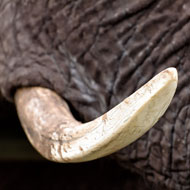UK a step closer to ivory ban

Around 55 African elephants are now slaughtered for their ivory every day.
A UK ban on ivory sales is one step closer to coming into force, as the government has introduced the Ivory Bill to parliament. The ban covers items of all ages, rather than just ivory carved after 1947. Anyone breaching the ban will face an unlimited fine or up to five years in jail.
Conservationists have welcomed the bill, which comes less than six weeks after the government published the results of a consultation on this issue. Around 55 African elephants are now slaughtered for their ivory every day and the illegal wildlife trade is estimated to be worth £17 billion a year.



 The latest
The latest